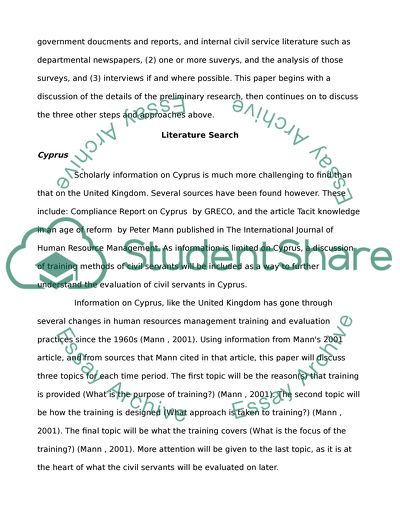Cite this document
(Comparison of the Evaluation of Civil Servants in Cyprus and the Research Proposal, n.d.)
Comparison of the Evaluation of Civil Servants in Cyprus and the Research Proposal. Retrieved from https://studentshare.org/politics/1520616-civil-servants-in-cyprus-and-the-united-kingdom
Comparison of the Evaluation of Civil Servants in Cyprus and the Research Proposal. Retrieved from https://studentshare.org/politics/1520616-civil-servants-in-cyprus-and-the-united-kingdom
(Comparison of the Evaluation of Civil Servants in Cyprus and the Research Proposal)
Comparison of the Evaluation of Civil Servants in Cyprus and the Research Proposal. https://studentshare.org/politics/1520616-civil-servants-in-cyprus-and-the-united-kingdom.
Comparison of the Evaluation of Civil Servants in Cyprus and the Research Proposal. https://studentshare.org/politics/1520616-civil-servants-in-cyprus-and-the-united-kingdom.
“Comparison of the Evaluation of Civil Servants in Cyprus and the Research Proposal”, n.d. https://studentshare.org/politics/1520616-civil-servants-in-cyprus-and-the-united-kingdom.


